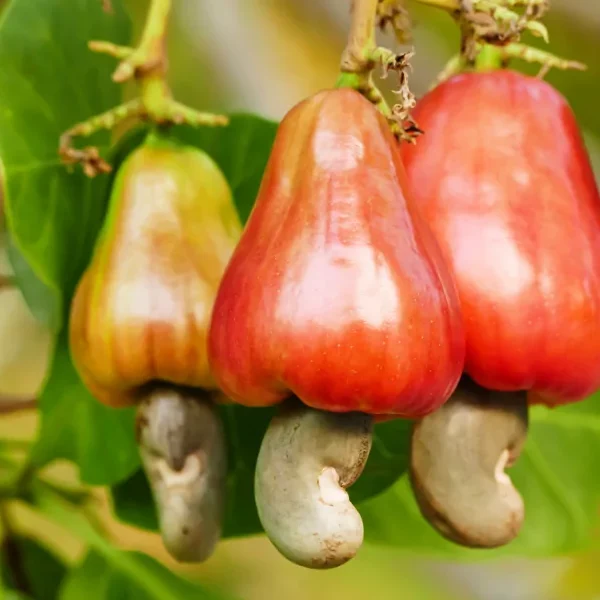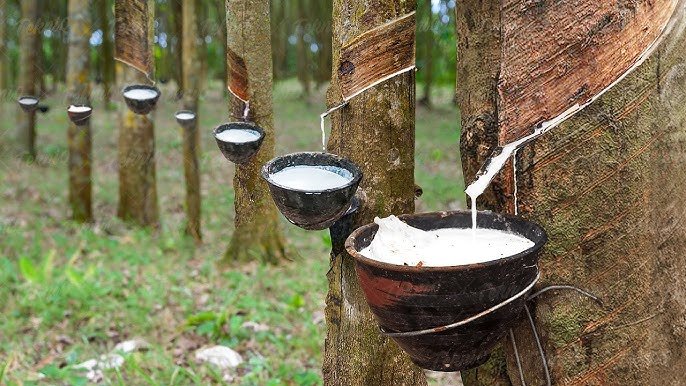The IMANI Center for Policy and Education has sounded the alarm that Ghana’s industrialization cannot succeed unless the country addresses its challenges at the farm level.
According to the policy think tank, industrial growth does not begin in the factory but rather on the farm, where the supply of raw materials determines the sustainability of local processing industries.
Without secure and reliable inputs, IMANI warned, even the most ambitious industrial policies risk collapsing before they take off.
IMANI explained that Ghana’s cashew and rubber industries, as well as the shea sector, highlight this pressing issue. These sectors have immense potential to generate jobs and revenue through value addition.
However, they are trapped in a cycle where raw exports dominate while local processors struggle to survive. This dynamic has created a situation where factories operate below capacity, and the promise of industrialization remains unrealized.

“Cashew has become one of Ghana’s most important non-traditional exports. But only 6–10% of raw nuts are processed locally. The overwhelming majority is exported raw, mostly to India and Vietnam, where processors pay attractive spot prices. This dynamic has left Ghanaian factories without enough feedstock to survive.”
IMANI Center for Policy and Education
IMANI highlighted the case of Usibras, Ghana’s largest cashew processor, which has been in operation for nearly a decade.
The company is now considering relocating to Côte d’Ivoire due to a severe lack of raw materials, high energy costs, and export tariffs that undermine its competitiveness.
For farmers, the think tank explained, exporting remains the rational choice. Exporters pay quickly and, in many cases, offer better margins than domestic processors.

This creates a dilemma for policymakers. If the government imposes restrictions on raw exports without offering incentives, farmers may simply turn to smuggling.
To avoid this, IMANI recommended policies that include better farm-gate prices, subsidized farm inputs, and guaranteed off-take arrangements.
Compounding these challenges is the growing threat of climate change, with erratic rainfall and rising temperatures reducing crop yields and threatening long-term production.
Rubber Industry Facing Similar Struggles
Globally, natural rubber is a $300 billion industry and forms the foundation of over 15,000 products, with 70% used in the transportation sector.
Ghana has significant potential, with more than 45,000 hectares of land under cultivation and laws like the TCDA Act of 2010 and LI2471, which prioritize local processors.
However, the current reality tells a different story. Ghanaian factories are operating at less than 40% of their capacity, while raw rubber exports dominate the sector. This costs the nation an estimated $100 million annually in lost value addition.

“By contrast, Côte d’Ivoire has surged ahead, already producing condoms, gloves, and motorcycle tires, and earning about $2.1 billion from rubber exports last year.”
“The bottlenecks are clear: Traceability collapse has eroded structured markets. Informal roadside trading undermines price stability for farmers and diverts raw material away from processors.”
IMANI Center for Policy and Education
Additionally, illegal mining activities, particularly in the Western Region, are causing extensive damage to plantations, mirroring the destruction that has long plagued the cocoa sector.
Another challenge is the weak enforcement of existing laws, which has allowed raw material exports to flourish despite policies designed to prioritize supply to local processors.

During the Ghana Industrial Summit & Exhibition Forum 2025, Emmanuel Akwasi Owusu, President of the Association of Rubber Actors of Ghana, recommended a temporary suspension of raw rubber exports for a period of three to six months.
He explained that this measure would help determine whether domestic processors have the capacity to absorb the additional volumes.
Without decisive action, he cautioned, Ghana risks missing out on valuable opportunities while neighboring countries continue to advance up the industrial value chain.
Policy Gaps Undermine Industrialization Ambitions
IMANI stressed that the struggles facing cashew and rubber are not isolated but symbolic of a broader national challenge.
“Cashew and rubber demonstrate that Ghana’s industrial ambitions are being undermined at the farm gate.
“Until the country protects its farmers, stabilizes supply chains, enforces its own laws, and deliberately prioritizes local processing, factories will continue to run idle while jobs, revenues, and opportunities are exported.”
IMANI Center for Policy and Education

The organization added that similar issues exist in other industries, including poultry feed and shea, proving that industrialization begins in the field.
The contrast between Ghana and Côte d’Ivoire is stark. While Ghana continues to debate how to retain raw materials, Côte d’Ivoire has successfully built industries that produce finished goods, capture higher value, and create sustainable jobs.
According to IMANI, export suspensions alone cannot solve the problem. Farmers must see the benefits of selling their produce locally; otherwise, they will resort to smuggling. This requires competitive farm-gate prices and strong incentives.
Additionally, local processors need a favorable business environment. This includes addressing high energy costs, easing financing challenges, and reforming outdated laws to make domestic production viable.
Until Ghana closes the gap between raw material production and industrial processing, IMANI warned, Ghana’s industrialization will remain an aspiration rather than a reality.
READ ALSO: Davido Officially Joins Grammy Academy























